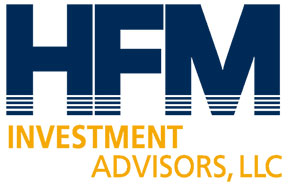
6 Common Administrative Tasks That Can Morph Into 401(k) Plan Headaches

Managing a 401(k) plan can leave even the most seasoned administrators feeling overwhelmed. With proper support, you can simplify the complex task of retirement plan management.
Top 401(k) Plan Headaches
The first step is to understand the potential problems. Here are some common issues that can cause headaches for plan sponsors:
- Uploading Payroll
- Determining Eligibility
- Over-Contributions
- Investment Changes
- Distributing Notices
- Regulatory and Legislative Updates
Navigating the labyrinth of retirement plan management can seem like a daunting challenge for any plan sponsor, employer or 401(k) plan administrator. The various administrative tasks, ranging from uploading payroll to handling investment changes, can often turn into 401(k) plan headaches.
- Uploading Payroll
A seemingly straightforward process can quickly turn into a minefield of errors. Incorrect data entry could lead to improper contributions, which could potentially result in legal and financial complications. One area of particular focus is the plan’s definition of compensation. When a special payroll cycle includes different types of compensation such as bonuses, commissions, or overtime, it’s important to know whether that compensation should be included or excluded from the 401(k) plan. This specific issue ranks #2 on the IRS’ Top Ten Failures Found in Voluntary Correction Program.
- Determining Eligibility
When an employee may enter your 401(k) plan is different for each employer. Common eligibility requirements include 21 years old and 1,000 hours of service. Then the employee is eligible to enter the plan on the next entry date: for example, January 1st and July 1st.
However, effective January 1st, 2024, there are new eligibility rules for long-term, part-time employees. Under the SECURE Act, employees that have worked 500 hours for three consecutive years are eligible to participate in the 401(k) plan on January 1st, 2024.
- Over-Contribution Quandary
An employee might max out their savings, then end up getting money back due to annual contribution limits. This creates extra administrative work and potential confusion for both parties. Get ahead of this now by running a report to learn if any employees are close to – or have – maxed out their 401(k) plan.
- Investment Changes
Moving from one investment option to another can be a complex process, requiring professional guidance from a 3(21) or 3(38) investment fiduciary. Plan sponsors should work with a 401(k) advisor, like us, to evaluate watch list funds and then implement recommendations based on your plan’s Investment Policy Statement. Additionally, it’s critical to communicate these changes to plan participants.
- Distributing Notices
Ensuring that all employees receive timely and accurate information about their 401(k) plan can be a daunting task, especially for large companies. One idea is to work with your recordkeeper and instruct them to send out notices. Another idea is to hire a 3(16) plan administrator who will send out and track required plan notices.
- Regulatory and Legislative Updates
Staying informed and compliant with the ever-changing landscape of retirement plan regulations is a significant challenge. For example, the SECURE Acts are two long and lengthy pieces of legislation that greatly impact 401(k) plans.
401(k) Plan Headache Relief
This is where a 401(k) advisor can give a helping hand. We can offer valuable support and guidance across several key areas:
- third party administrator (TPA) communication
- recordkeeper collaboration
- investment strategy
- plan design support
- employee education
- fiduciary and regulatory guidance
While the role of managing a 401(k) plan can be fraught with potential pitfalls and headaches, the support of a specialized retirement plan advisor can significantly lighten the load. We can help streamline processes, establish compliance best practices, educate employees and foster an efficient retirement plan.
About Your New Jersey Retirement Advisors
We believe that everyone should have the tools and resources necessary to build retirement wealth successfully. At HFM Investment Advisors, we are passionate about:
- Offering fiduciary training and defending against plan risks.
- Empowering your employees to save and better prepare for their future.
- Building effective retirement plans and investment strategies tailored to your specific goals.
As your 401(k) specialists, We take the time to understand your goals and are not afraid to dedicate the time, energy and resources needed to exceed your expectations. Talk to a 401(k) Expert.
856-232-2270
401kteam@hfmadvisors.com
102 West High Street Suite 200, Glassboro, New Jersey 08028
HFM Investment Advisors, LLC is a registered investment adviser. The information presented is for educational purposes only and does not intend to make an offer or solicitation for the sale or purchase of any specific securities, investments, or investment strategies. All investments involve risk and there can be no guarantee of any future performance of any investment. Be sure to first consult with a qualified financial advisor and/or tax professional before implementing any strategy discussed herein. Past performance is not indicative of future performance.
This information was developed as a general guide to educate plan sponsors and is not intended as authoritative guidance or tax/legal advice. Each plan has unique requirements, and you should consult your attorney or tax advisor for guidance on your specific situation.
©401(k) Marketing, LLC. All rights reserved. Proprietary and confidential. Do not copy or distribute outside original intent.
